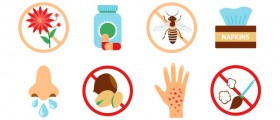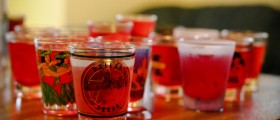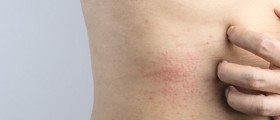
Wedding bands, or wedding rings, are pieces of jewelry, crafted from different kinds of metals, intended to be worn every day to indicate that the wearer is married. Wedding rings are typically made of gold, titanium, platinum or tungsten. Most of the people wear yellow gold rings. However, repeated and constant exposure to gold can cause allergic reactions on the wearer’s skin. In rare cases, people are born with this allergy. Most commonly it develops gradually, over time, from wearing gold on the regular basis. Over many years, body gradually develops hypersensitivity and reacts intensively in contact with that substance.
Allergy to gold
Most commonly, people do not have allergic reactions to gold itself but to the nickel content in gold alloys. This kind of reaction is usually associated in the alloy rich 9-carat gold. This type of jewelry is highly reactive, and it may blacken from the exposure to chemicals or moisture from the atmosphere or perspiration. In the same manner, various soaps, detergents and chemicals can lodge between the ring and the skin, causing local dermatitis and irritation of the area.
The important thing to understand is that everyone’s body chemistry is different and some people are much more susceptible to allergy than others. Accordingly, women may be more likely to develop allergic reactions to gold during certain periods in their menstrual cycle, as their body chemistry drastically fluctuates.
Jewelry made from 18-carat alloy doesn’t include any nickel or zinc, but only silver and copper. Therefore, it is less likely to provoke any kind of allergy.
Symptoms of gold allergy
Most commonly, gold allergy manifests by itching in the area where the golden ring came in contact with the skin. The area will typically become slightly pink or even very red and irritated. Sometimes, there is a rash or eczema in the affected area, causing the skin to crack or break, blister or ooze. This counts for a more severe reaction and demands medical attention to avoid any possibility of complications and further infections. In rare cases, raised bumps on the skin, also known as hives, can develop. Hives can be localized or spread over the body. In severe cases, medical attention is also required.
Gold allergy will typically affect the areas in which the gold is in constant contact with the skin, such as under the wedding ring. Removing the piece of jewelry will normally alleviate the symptoms. Washing with cold water, with very mild soap, will typically solve the problem in a couple of days.

















Your thoughts on this
Loading...